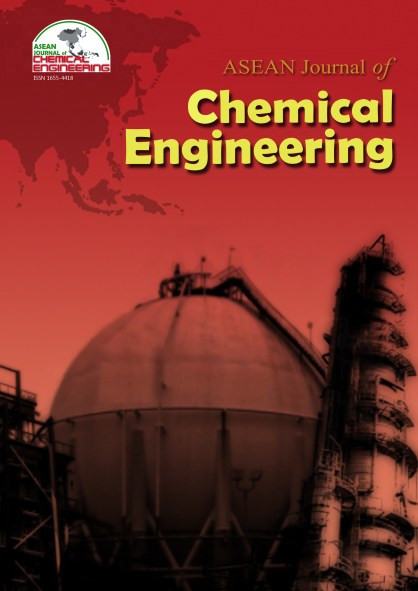Making of Nanopore NaA Zeolite Membranes for Saline Wastewater Treatment
Abstract
Zeolite membranes have been studied extensively for more than fifteen years, mainly focusing on gas separation and liquid pervaporation processes. Recently, molecular dynamic simulation has shown that zeolite membranes are theoretically suitable for ion removal from aqueous solutions. This work proposes to use zeolite membranes for desalination of saline recycled wastewater for the possibility of avoiding the costly treatment needed for saline wastewater by Conventional approaches. NaA zeolite membrane indicates that it may be possible to simultaneously separate ions and dissolved organic compounds from water by pervaporation (PV) processes. NaA zeolite membranes composed of a continuous intergrowth of NaA zeolite crystals have been prepared hydro thermally on the surface of porous tubular supports. In this research, synthesis of zeolite NaA membrane was investigated. SEM and XRD analysis have been used to confirm zeolite NaA membrane formation. Membrane performance has been evaluated using an experimental pervaporation setup. Effects of operation condition (temperature, rate and pressure) on the membrane structure and performance have been investigated for NaA zeolite membranes grown onto seeded mullite supports.
References
2. Almutairi, L. (2015). Intensification of ammonia removal from wastewater in biologically active zeolitic ion exchange columns, Journal of Environmental Management, 160, 128– 138.
3. Premakshi, K., and Ramesh, M. (2015). Modification of crosslinked chitosan membrane using NaY zeolite for pervaporation separation of water– isopropanol mixtures, Chemical Engineering Research and Design, 94, 32–43.
4. Zhu, D., and Myat, G. (2015). Application of robust MFI-type zeolite membrane for desalination of saline wastewater. Journal of Membrane Science, 475, 167-174.
5. Malekpour, M.and Millani, M. (2008). Synthesis and characterization of a NaA zeolite membrane and its applications for desalination of radioactive solutions. Desalination, 225, 199–208.
6. Gazagnes, S. and Cerneaux, M. and Persin, E. and Prouzet, A. (2007). Desalination of sodium chloride solutions and seawater with hydrophobic ceramic membranes. Desalination, 217, 260–266.
7. Basu, S. and Mukherjee, A. (2015). Integrated treatment of molasses distillery wastewater using microfiltration (MF). Journal of Environmental Management, 158, 55– 60.
8. Sanaa, J. (2015). Recent improvements in oily wastewater treatment: Progress, challenges, and future opportunities. Journal of Environmental Sciences, 37, 15–37.
9. Benito, M.J. and Pena, M.A. (2007). Development of a new high porosity ceramic membrane for the treatment of bilge water. Desalination, 214, 91– 101.
10. Speronello, K. (1986). Porous mullite. U.S. Patent No., 4601997.
11. Sonia, A. and Gascn, J. C. (2009). Continuous synthesis of NaA zeolite membranes. Microporous and Mesoporous Materials, 120, 170–176.
Copyright holder for articles is ASEAN Journal of Chemical Engineering. Articles published in ASEAN J. Chem. Eng. are distributed under a Creative Commons Attribution-NonCommercial 4.0 International (CC BY-NC 4.0) license.
Authors agree to transfer all copyright rights in and to the above work to the ASEAN Journal of Chemical Engineering Editorial Board so that the Editorial Board shall have the right to publish the work for non-profit use in any media or form. In return, authors retain: (1) all proprietary rights other than copyright; (2) re-use of all or part of the above paper in their other work; (3) right to reproduce or authorize others to reproduce the above paper for authors’ personal use or for company use if the source and the journal copyright notice is indicated, and if the reproduction is not made for the purpose of sale.


